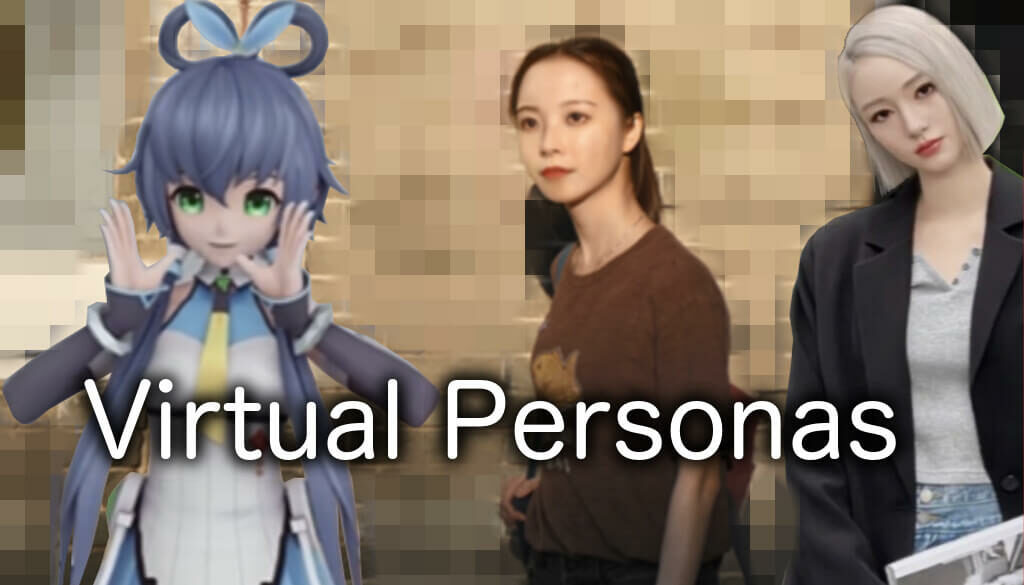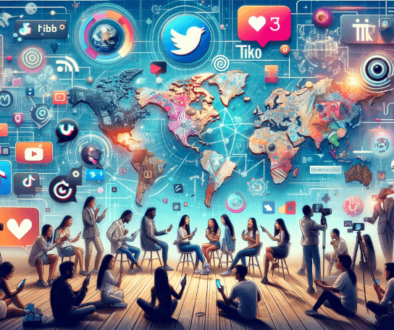Virtual KOL Online Business, Next Stop: Brand Building
While traffic stars continue to overturn, virtual idols are replacing them and becoming the brand’s propaganda killer. From Watson’s release of the first virtual idol spokesperson “Qu Chenxi” in 2019 to L’Oreal China’s launch of virtual idol “Oye” in March this year, the field of fashion and beauty seems to be ushering in a brand-new era of brand spokespersons.

Virtual idols usher in an explosion
Virtual idols are idols that do not exist in physical form for a specific purpose. They are made of computer graphics, AI, motion capture and other technologies, with perfect images and distinct personal settings.

It can be said that in addition to the lack of realistic bodies, Ta people have human emotions, appearance and personality can be set according to the situation, and it is difficult for the sudden collapse of idol images in real life. With the development of technology, virtual idols can appear in almost any occasion without time and space, such as CCTV stage scene, Taobao live room, online talent show scene, concert, etc.
In fact, virtual idols have existed for a long time, dating back to the 1980s, when the British created a virtual character Max Headroom. However, virtual idols were not gradually noticed by the public until 2007, after the birth of Japanese virtual singer Mikufu.
The early virtual idols were not as flexible as they are now. They were once limited to the small circle of two dimensions and their development was limited. With the development of Internet technology, the image of virtual idols has gradually become three-dimensional and the types have become richer. The operation mode has also expanded from one company to more than n brands, including Taobao Tmall, Huaxizi, L’Oreal and many other well-known brands, all of which have entered the design of virtual idols one after another.
Especially for beauty fashion brands, they are all launching their own brand’s exclusive virtual idols or the virtual images of existing spokespersons. The explosion of such a hot virtual idol is more like a typical rise in the wind of the times. In 2020, the global epidemic of COVID-19 has made many people work from home. Star chasing in the traditional sense cannot meet people’s emotional pursuits. Brands are also trapped here. It is difficult to carry out large-scale offline promotion activities with traffic stars, and virtual idols that can interact online have naturally become a new goal.
Beauty brands are crazy about making stars.
In 2019, Watson launched the first virtual idol spokesperson – Qu Chenxi, who exists in the virtual world. This spokesperson has a handsome image and a very affinity that stars do not have. He can get together with the audience, and is versatile, from hosting to singing and dancing, everything.
Later, the next generation culture and magic technology jointly created the first national style virtual KOL-Nium. Compared with Qu Chenxi’s animation image, the design has more Chinese characteristics. She loves Chinese traditional culture. In addition to the typical appearance of oriental girls, she likes Peking Opera, brush characters and Tai Chi, and her voice is also collected from the third generation of Peking Opera Mei School. Heirloom likes to dig delicious food and drink two glasses, but get drunk when you get drunk.

Since 2020, more and more beauty brands have also joined the ranks of making virtual spokespersons. From L’Oreal to Winona, to the “virtual image” Huaxizi just launched in June this year, beauty brands have customized more and more “spokesmen” and are active in major social brands.
Like real people Aidou, virtual idols can also sit on millions of fans, sign big-name advertisements, and even appear in major fashion magazines and various selection lists. After all, it has been officially certified by CCTV.
The continuous development of the two-dimensional culture in China’s Z era in recent years has created a good development environment for virtual idols, and the momentum is booming. TAs can not only appear on social platforms, but also communicate closely with consumers.

L’Oreal’s first virtual idol has been officially labeled as the top of the social circle, ingredient party expert, sustainability expert, minister of information and so on by the brand. In an interview with the media, Winona also said that the virtual image will be communicated with consumers with the Q version of doctors and plant ingredients for interesting communication.
Or the next stop of brand marketing
Why are virtual idols so popular and favored by brands?
With the continuous development of artificial intelligence technology, virtual idols have gradually got rid of various problems such as early rigidity and rigidity. The design is exquisite, the human settings are almost perfect, and there is no risk of various negative news. How can brands not love it?
I don’t know if you still remember that after Prada just announced Zheng Shuang as the latest spokesperson on Weibo, not long after the star scandal broke out, and the whole network was sympathizing with Prada’s public relations and Xiao Zhan fan incident, and many people boycotted its endorsement.
In recent years, traffic stars have frequently overturned, which also makes the brands they cooperate with are always frightened for fear that a star will not operate properly and suffer with the brand.
Compared with traffic stars, virtual idols do not worry about this aspect, and can also carry out personalized design according to the development needs of enterprises to meet different unique promotion needs. Although the development of virtual idols is not as easy as expected, brands are now more about introducing concept creation, but both costs or other parties On the face-to-face consideration, it is obvious that virtual idols perfectly PK off real idols.
In addition, the development of fashion beauty brands must keep up with the trend. With the breakthrough development of the two-dimensional culture, the number of two-dimensional users in China has reached about 332 million in 2019, and it is expected to exceed 400 million in 2021. These Internet natives are more used to the companionship in virtual spaces, and they are more willing to pay for virtual idols than real people. Therefore, in order to win the favor of audience users, brands began to gradually launch virtual idols, hoping to further strengthen their brand image.
Although the current development of virtual idols is still in the stage of concept creation, it has shown strong advantages in the field of brand commercial development. Perhaps this is the next stop of brand marketing.



